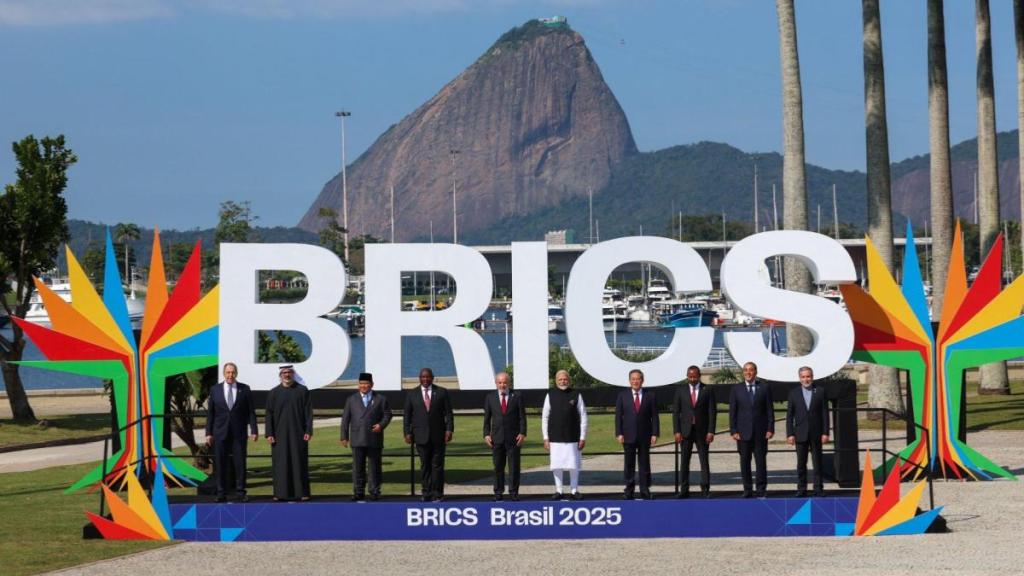As the world is still in the midst of the tariff war set off by the US and President Donald Trump is vocal against any undermining of the dollar, the BRICS leaders on Monday avoided any mention of trade in local currencies, let alone de-dollarisation, in the statement issued after their just-concluded summit in Brazil.
The BRICS summit in October last year in the Kazan Declaration had said: “ We welcome the use of local currencies in financial transactions between BRICS countries and their trading partners. We encourage strengthening of correspondent banking networks within BRICS and enabling settlements in local currencies in line with BRICS Cross-Border Payments Initiative (BCBPI).”
Just as the declaration of the BRICS Summit was under preparation in Rio de Janeiro, Trump had warned of 10% additional tariffs on countries who align with what he called “anti-American” policies of BRICS. Trump, however, did not elaborate on what constituted the American policies.
China said on Monday that BRICS was not seeking “confrontation.” “Regarding the imposition of tariffs, China has repeatedly stated its position that trade and tariff wars have no winners and protectionism offers no way forward,” China’s foreign ministry spokeswoman said.
BRICS includes Brazil, Russia, India, China, South Africa, Egypt, Ethiopia, Indonesia, Iran and the United Arab Emirates as members.
The Rio declaration, however, strongly condemned military strikes against Iran and expressed serious concern over deliberate attacks on civilian infrastructure and peaceful nuclear facilities under full safeguards of the International Atomic Energy Agency (IAEA), in violation of international law and relevant resolutions of the IAEA. The attacks on Iran’s nuclear facilities were carried out by the US bombers.
Earlier in November last year too Trump had threatened 100% tariffs on BRICS members if they tried to create a new currency or back any other to undermine the US dollar.
As the maximum damage from the tariff war would be borne by the BRICS members, the declaration expressed serious concerns about the rise of unilateral tariff and non-tariff measures which distort trade and are inconsistent with World Trade Organisation (WTO) rules. For tariff actions the US was the target. Among non-tariff barriers that were singled out for mention were those related to climate like the European Union’s carbon tax and deforestation regulations.
While the carbon tax impacts all members – most of all China and India. The deforestation regulations will impact big agriculture exporters like Brazil..
“The proliferation of trade-restrictive actions, whether in the form of indiscriminate rising of tariffs and non-tariff measures, or protectionism under the guise of environmental objectives, threatens to further reduce global trade, disrupt global supply chains, and introduce uncertainty into international economic and trade activities, potentially exacerbating existing economic disparities and affecting prospects for global economic development,” the declaration said.
The grouping also backed the revival of WTO’s dispute settlement mechanism that has been in limbo since December 2019 over the failure to appoint members to the appellate body due to opposition of the US to the current system of settling disputes at the global trade regulating body. “We remain committed to the urgent restoration of an accessible, effective, fully-functioning, two-tier binding WTO dispute settlement system,” .
On the issue of trade in critical minerals the summit declaration talked of keeping the supply chains of these minerals intact while ensuring full autonomy to the mineral-rich countries to take measures necessary to pursue legitimate public policy objectives.


